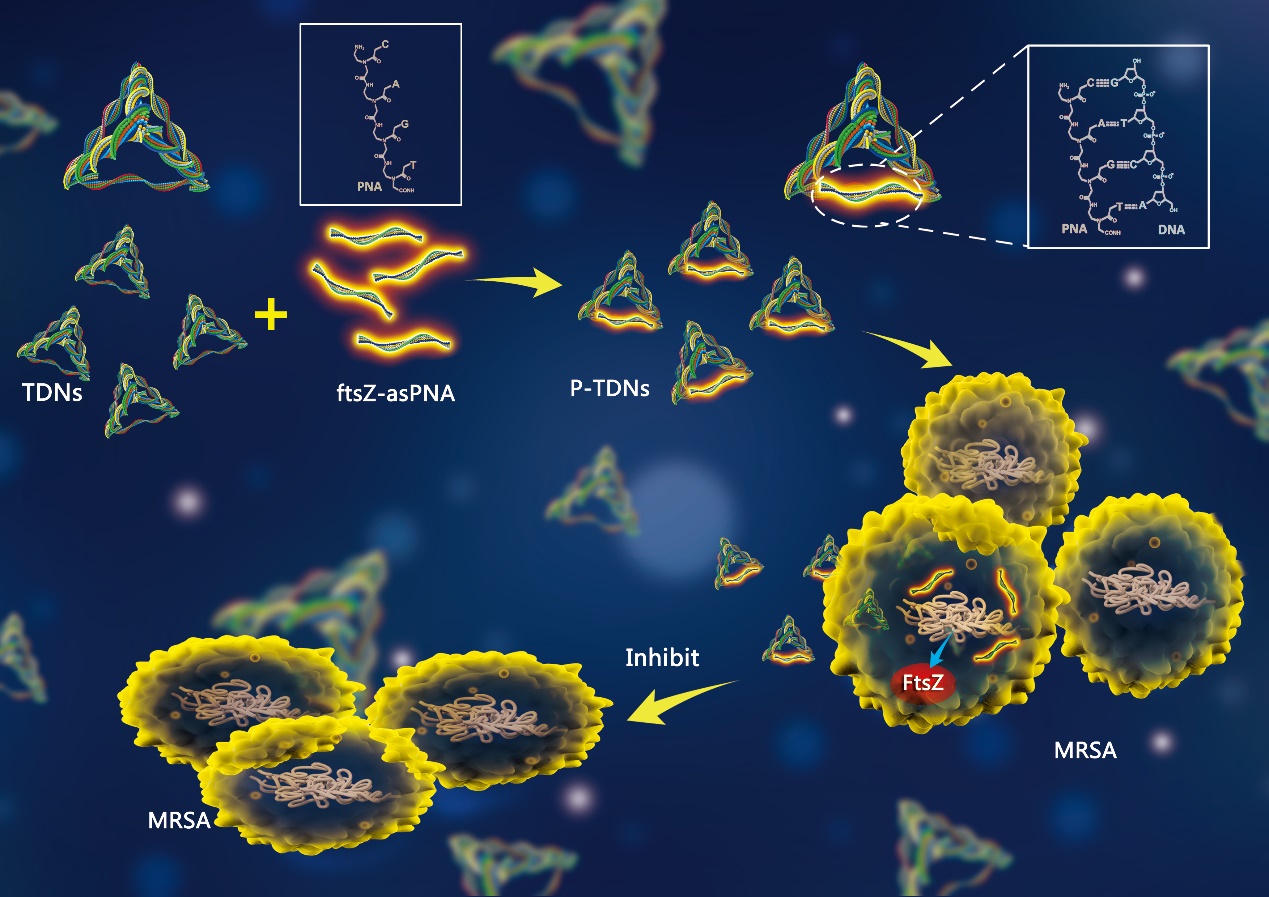Recently, Sichuan University West China Medical School Professor Yunfeng Lin oral team published a paper titled "Inhibiting Methicillin-Resistant Staphylococcus aureus by Tetrahedral DNA Nanostructure - Enabled Antisense Peptide Nucleic Acid Delivery" on the international front journal Nano Letters (impact factor 12.080). A non-cytotoxic tetrahedral DNA nanostructure with controllable conformation was developed as a carrier of antisense oligonucleotide. The first author of this paper is Yuxin zhang, 2017 master of the West China School of Stomatology, and the corresponding author is Professor Yunfeng Lin.

The research shows that, one of the biggest obstacles for the use of antisense oligonucleotides as antibacterial therapeutics is their limited uptake by bacterial cells without a suitable carrier, especially in multi-drug-resistant bacteria with a drug efflux mechanism. Existing vectors, such as cell-penetrating peptides, are inefficient and nontargeting, and accordingly are not ideal carriers. A noncytotoxic tetrahedral DNA nanostructure (TDN) with a controllable conformation has been developed as a delivery vehicle for antisense oligonucleotides. In this study, antisense peptide nucleic acids (asPNAs) targeting a specific gene (ftsZ) were efficiently transported into methicillin-resistant Staphylococcus aureus cells by TDNs, and the expression of ftsZ was successfully inhibited in an asPNA-concentration-dependent manner. The delivery system specifically targeted the intended gene. This novel delivery system provides a better platform for future applications of antisense antibacterial therapeutics and provides a basis for the development of a new type of antibacterial drug for multi-drug-resistant bacterial infections.
The original link:https://pubs.acs.org/doi/10.1021/acs.nanolett.8b02166
